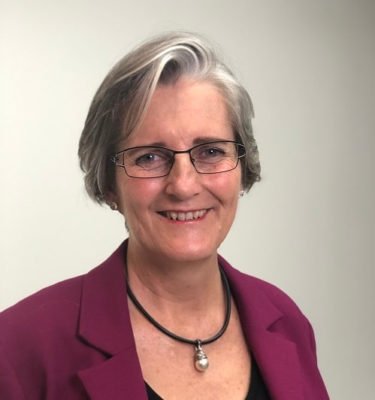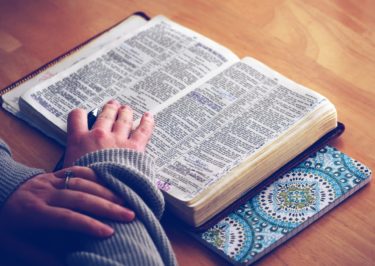Every so often a new health documentary appears on Netflix, and every time I can feel the dread rise in my chest as I anticipate the questions and requests that typically come my way (“Have you seen it?”, “What did you think of it?”) along with the inevitable misinformation that I’m asked to correct.
When the trailer for (Un)Well appeared, I found myself filled with curiosity instead of dread. It seemed… interesting? That feeling lasted about as long as the intro sequence to the first episode. It was largely downhill from there.
(Un)Well is a 6-part documentary series in typical Netflix style: no narrator, lots of fancy B-roll, and a hell of a lot of fence-sitting. Each episode covers a particular trend in the Wellness industry: essential oils, tantric sex, breast milk for athletes, fasting, Ayahuasca, and bee-sting therapy. The description states that it aims to deep-dive and shine light on these, which is a noble goal in theory, but in practice they made such a mess of it that even the few good parts can’t make up for the over-confident characters and the dangerous messages they spread.
First and foremost, this documentary series falls prey to the common issue of false balance. Instead of outright condemning the various risky practices, they simply tell a few stories, bring in a few experts, and leave you to make up your own mind. To portray someone’s anecdote as being equivalent to an expert’s researched verdict is misleading. The two are far from the same. But how can an expert saying that consuming breast milk ordered via Facebook carries great risks possibly match up to someone claiming it cured their prostate cancer? The emotional weight of the story is far more convincing to a susceptible lay audience.

Speaking of experts, they don’t receive anywhere near enough airtime in this series. We see incredibly articulate and intelligent arguments made by the likes of Steven Novella, Christy Harrison, and Dr Joy Bowles (who utters the most iconic line: “People say there are lots of studies – I used to think that was impressive too”. BURN) but they are cut short to make way for footage of vulnerable and sick individuals desperately trying whatever it takes to heal themselves. We see Dr Steven Novella expertly break down the components of bee venom only to immediately return to ‘The Heal Hive’ where founder Brooke Geahan (who has the audacity to name her social media @everydayexpert) says “we don’t know why it works”. We definitely needed more from the experts here.
In addition, there simply wasn’t enough emphasis on the potential for harm. During most episodes we hear from someone who has suffered greatly, or even died, as a result of the therapies and practices mentioned: whole-body rashes from essential oils, sexual assault in tantra workshops, death by water fasting, death by ayahuasca, and death by bee sting. We watch a group of people partaking in a (likely illegal) ayahuasca ceremony in the US where one woman has a bad reaction and stops breathing. The facilitators group around her asking each other “what do you want to do?” as if the answer was not blatantly obvious. Cue me shouting at my TV screen “call an ambulance now!” to no avail. Spoiler alert: she survived, and left terrified at the idea of trying that again. These stories are an important component, and yet the absence of a narrator meant the audience’s attention couldn’t be fully directed to where it was most needed.
It’s worth pointing out a few things that this documentary series did well. They discussed the issue of cultural appropriation in the Wellness industry, which is a huge problem that is too often swept under the carpet. During the ayahuasca episode we hear a local healer says that westerners want to take everything from them, including their spirituality. He’s not wrong. There are also some interesting overlaps between Wellness practices and religion. “Dr” Z, a blogger and chiropractor who sells essential oil masterclasses, claims that Jesus cured his depression (but Jesus couldn’t extend that to acne, apparently that was too hard); a father in Gaza states that “Bees receive divine messages from God” while holding down his son so he can be stung behind the ears to cure his hearing issues; and a tech-CEO in Silicon Valley asks “did God tell us to eat three meals a day?” as part of his argument for fasting (the irony of his name being Woo was not lost on me). Wellness can be cult-like, with a community to rival that of organised religion, and when so much of the documentary was focused on the US it didn’t surprise me to see so much religious narrative present. While they didn’t explicitly delve into this, it was interesting.

It’s clear to see why many of the individuals we follow through the episodes try these unusual and unproven therapies – they’re desperate, vulnerable, and willing to try whatever it takes to improve their lives in the face of difficult diagnoses and years of chronic illness. Of course they are. I think many of us would struggle not to do the same if we were in the same position. I have no anger to direct towards these individuals, I reserve it entirely for those creating shiny healing centres with false promises and false hope, for those profiting from people’s vulnerability. These are the people who say “I feel like I’ve played a positive part in these changes [in people]”, yet would never say “I feel like I’ve played a part in the negative things that happen”. Willing to accept all the praise yet none of the responsibility.
Overall, (Un)Well was majorly disappointing. I wouldn’t recommend wasting your time with it. What I would suggest, instead, is that you listen to myself and cardiothoracic surgeon Dr Nikki Stamp analysing the claims on our podcast, In Bad Taste, so that you can argue with Auntie Karen when she brings up essential oils as a cure for all your ills.


